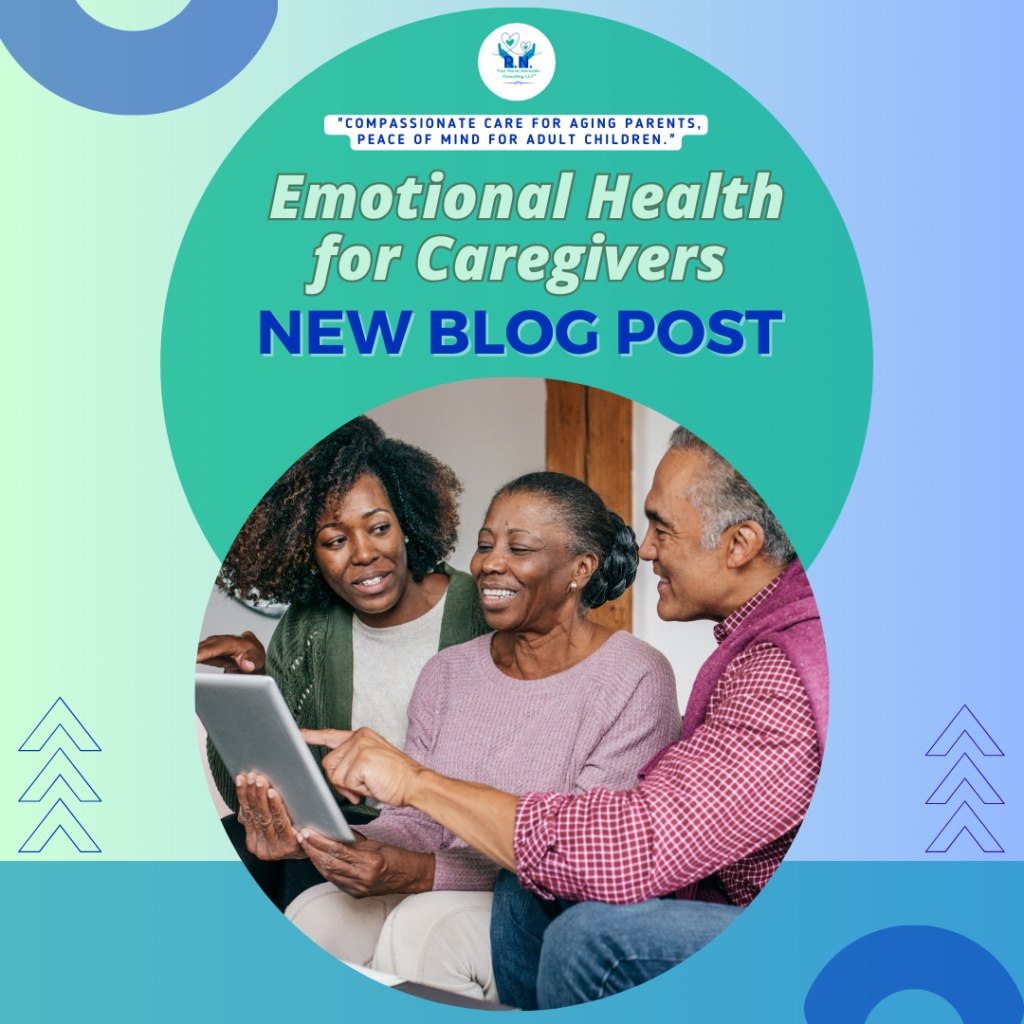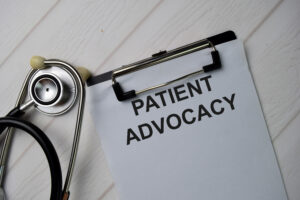
Caring for a loved one is a noble and rewarding task, but it can also be physically, mentally, and emotionally demanding. New caregivers often find themselves overwhelmed with responsibilities, living in the chaos leaving little time for personal care. However, it’s crucial to remember that caring for the caregiver, you, are recognizing the importance of Emotional Health through self-care while finding peace. It is not a luxury, but a necessity. After all, you can’t pour from an empty cup.
Below is an interactive self-care checklist designed specifically for new or beginning family caregivers. Before we get into the details, let’s start with a personal story that illustrates just how impactful self-care can be.
My “Go To” Strategy
One of my favorite things to do is get lost in some music. I love the 60s, 70s, and 80s station I have saved. I am giving you a good clue on my age here! When a song takes me back to high school, I may even get up and dance while no one is watching! It makes me feel great and immediately lifts my spirits. This small act of self-care provides a much-needed break and a boost of energy. Sometimes all it takes is one song and I am back “in the groove.”
The Importance of Emotional Well-being
Recognizing and nurturing your emotional well-being is essential for effective caregiving. Here are some ways to focus on your emotional health:
- Recognize and Acknowledge Your Feelings
Allow yourself to feel both positive and negative emotions without judgment. No lie, there are times when caregiving will be frustrating for all of us, even us as RNs with all our training, it still gets to us too.
- Seek Emotional Support
Connect with friends, family, or support groups to share your experiences and feelings. It is so helpful to connect with those that are on the same journey as you. I remember talking with my mother-in-law after my father-in-law passed. She stopped doing her normal things for almost a year. She stopped going to church, going out except for grocery shopping etc. She was lost. We tried to support her but she kept saying, “you don’t know what it is like.”
Finally, we got her to agree to go to a grief support group. What a blessing that was. She was in a room of other women who had lost their husbands and they felt understood, justified in their feelings, and supported.
This is important for caregivers as well to be supported by people that get you and are on the same path as you are.
I think that is one of the reasons Linda and I are so passionate about our services because we are both caring for aging parents as we speak. We get it.
- Take Time for Yourself Daily
Reserve a few minutes each day to relax and recharge. No matter what it is, make the time!
- Practice Mindfulness and Self-Compassion
Engage in activities that promote calmness and self-kindness. There are a lot of free apps and programs out there based on your unique needs. Some people don’t care for meditation, but journaling helps them. There is no right or wrong method or activity as long as the end result is the same.
- Consider Professional Counseling
If overwhelmed, speaking with a therapist can provide you with coping strategies. To seek help is a sign of strength, not weakness. The main idea around this is to express the importance of seeking and accepting help. Highlight how it not only eases our burdens but also strengthens our connections with others. Emphasis should be placed on the wisdom in recognizing when we need assistance and the positive impact it can have on our personal lives even if it means becoming vulnerable in front of others.
“Until we can receive with an open heart, we’re never really giving with an open heart. When we attach judgment to receiving help, we knowingly or unknowingly attach judgment to giving help.”
– Brené Brown.
- Celebrate Your Successes
Reflect on and celebrate the positive impact you’re making. Celebrate the wins, especially the small ones. Don’t be afraid to laugh. Often laughter is the best medicine. Some of my best jokes were on me! There is no owner’s manual on the art of caregiving. Sure, we all have our opinions but at the end of the day we all learn as we go.

Interactive Self-Care Checklist
Here’s your checklist to help manage your self-care:
- [ ] Establish a Daily Routine
Prioritize your own needs alongside caregiving duties.
- [ ] Practice Stress-Reducing Techniques
Try meditation or deep breathing exercises.
- [ ] Make Time for Physical Activity
Even a short walk can enhance your mood and energy.
- [ ] Maintain a Healthy Diet and Stay Hydrated
Nutrition is key to maintaining your health and stamina.
- [ ] Ensure Adequate Sleep
Aim for at least 7-8 hours each night to recharge.
- [ ] Schedule Regular Health Check-Ups
Keep tabs on your health with regular doctor visits.
- [ ] Stay Socially Connected
Engage with friends and support networks.
- [ ] Join a Caregiver Support Group. We do have a free private community where we have discussions and share information to our members. You can learn more HERE.
Gain mutual support and advice from others in similar situations.
- [ ] Set Realistic Expectations and Boundaries
Avoid burnout by knowing your limits. Here are two resources on Caregiver Burnout
Video One: Caregiver Burnout
Video Two: Give Yourself a Break
- [ ] Reflect on Your Successes
Celebrate the positive impact you make every day. Even if your loved one does not have the capacity to tell you how much they appreciate you or they don’t say it often enough, you are doing the good work. After things change and time goes by without them, you can be in peace you did your part to care for an aging loved one.
Emotional Testimonials-We are Here to Help Share the Caregiving Burden.
Sharing how a nurse advocate can help to lift the burden of responsibility. SL from Seattle WA said it best, “I feel like I am on a little vacation without having to worry about all these things by myself.”
What others are Saying…
Final Thoughts
Remember, your emotional health is paramount, and taking care of it is part of being a strong, supportive caregiver. Use this checklist daily, and remember that even small steps can make a big difference.
By maintaining your own health, both physically and emotionally, you are better equipped to care for your loved ones. Don’t hesitate to reach out for support when you need it. You are not alone on this caregiving journey.
Thanks for stopping by and spending a few minutes with us. Our passion is to work with adult children of aging parents and aging spouse caregivers to give support and guidance to allow you to share the caregiving burden and support you along this journey.
Pam and Linda
Your Nurse Advocates
“Compassionate care for aging parents with peace of mind for the adult children.”
Additional Resources
Taking care of your emotional health is a critical aspect of being an effective caregiver. Here are some additional resources to further support your well-being:
- Recommended Reading
The Conscious Caregiver by Linda Abbit
Passages in Caregiving by Gail Sheehy
- Online Support Groups
- Your Nurse Advocate Consulting Free Resources
Speaking out on the Care of Your Aging Parent-Your Nurse Advocates
Remember, taking care of yourself is a fundamental part of caregiving. By prioritizing your well-being, you are not only helping yourself but also enhancing the care you provide to your loved ones.





